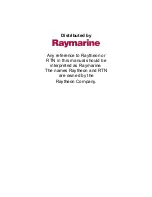
92
If you find any problems, please take the following steps to check.
◆ LED indicators
■ The POWER LED (Power) is not lit.
● Is the correct port LED display mode selected by pressing the LED switch
button?
● Is the power cord connected? Please confirm that the power cord is
securely connected to the power port.
● Use the switch within the range of operating temperature.
■ The Port LED is not lit in Status mode.
● Is the cable correctly connected to the target port?
● Is an appropriate cable used?
● Is a 10BASE-T, 100BASE-TX, or 1000BASE-T terminal connected to the tar
-
get port?
● Auto-negotiation may have failed.
→ Set the port of this switch or the terminal to half-duplex mode.
■ The port LED (Right) is lit solid orange.
● A loop is occurring. When you recover from the loop, the solid orange LED
is turned off.
■ LOOP HISTORY LED is flashing green.
● There is a port with a loop or a port on which a loop had recovered within
3 days.
◆ Communications fail.
■ Communications with all ports are down or slow.
● Are the communication speed and mode settings correct?
→ When a communication mode signal cannot be properly obtained, the
switch operates in half-duplex mode.
Switch the communication mode of the connection target to half-duplex
mode.
Do not fix the communication mode of the connected device to full-
duplex mode.
● Are the ports linking up?
→ If the MNO series power saving mode is set to "Full", try setting it to
"Half" or "Disabled."
● Is the bandwidth usage rate of the backbone network to which this switch
is connected excessively high?
→ Try separating this switch from the backbone network.
● Is the port LED (Right) lit solid orange?
→ If the port LED (Right) is lit solid orange, the port is being blocked by the
Loop detection and blocking function. After the port is recovered from
the loop, wait for more than the recovery time until a port starts to be
automatically recovered, or release the blocked port on the configura
-
tion screen.
Appendix C.Troubleshooting



































